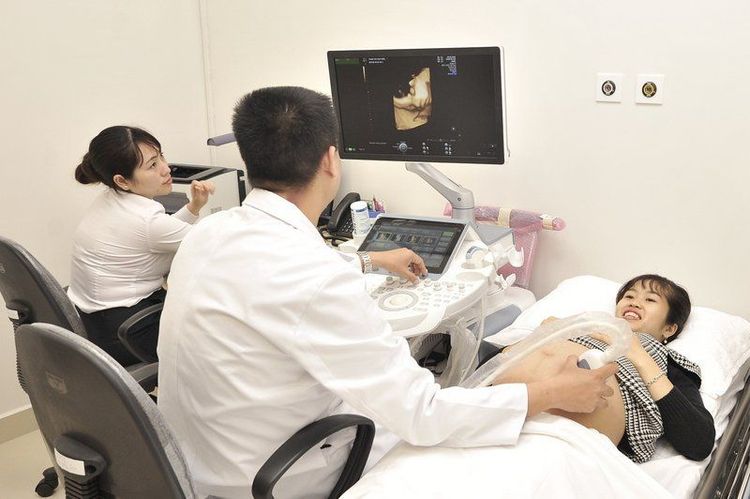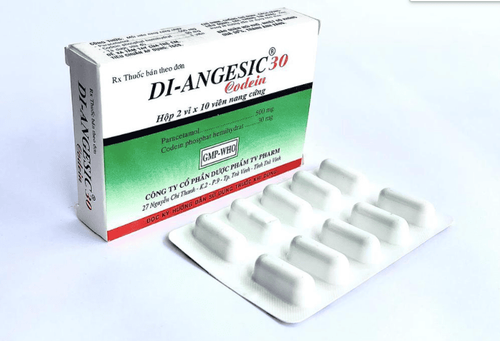This is an automatically translated article.
The article is professionally consulted by Master, Doctor Doan Ngoc Quynh Tram - Department of Pediatrics - Neonatology - Vinmec Nha Trang International General Hospital.
Neonatal acute respiratory distress syndrome, also known as endocardial disease, is a condition in which breathing is difficult and often occurs in premature infants. If respiratory failure is not promptly given to the child, this disease will cause many dangerous complications, even death.
1. Acute respiratory distress syndrome
Acute respiratory distress syndrome is defined as a disorder that occurs in the respiratory tract, when the supply and circulation of O2, as well as the body's removal of CO2 have abnormal malfunctions. If the airways are severely blocked and for a long enough time, it can lead to impaired function of key organs such as the lungs, heart, brain, and even life-threatening. In Vietnam, although there are no accurate statistics so far, the actual mortality rate due to acute respiratory failure is quite high.Physiologically, the acute respiratory distress syndrome is characterized by decreased lung and alveolar area (collapse) as well as chest depression in the patient. The common subject of this disease is premature babies, because the baby's internal organs are still not fully developed and complete, especially the lungs.
In most cases, symptoms of respiratory failure appear within minutes to hours of birth, when common causes of airway obstruction such as bacterial infection have been excluded, Asphyxiation of amniotic fluid, inhalation of meconium.... Newborns with acute respiratory failure will have the following symptoms:
Shortness of breath Rapid and rapid breathing over 60 times/minute Concave intercostal space Nasal flaps The whole body is purple Even if the child has given oxygen support but still has no signs of improvement, it can be diagnosed that the child has acute respiratory failure.

2. Dangerous complications of acute respiratory failure
Newborn with respiratory failure? Doctors believe that this disease has the potential to cause many dangerous complications. In the long term, acute respiratory distress syndrome will affect the growth and later development of the baby. In the event that the child is not given emergency treatment for respiratory failure in time and actively treated, this will also become a silent enemy that takes the patient's life.Specifically, some unwanted complications stemming from acute respiratory distress syndrome can be mentioned as:
In the heart: stagnation of air around, blood infection, blood clot formation in the body, Lower blood pressure and blood sugar In the lungs: Accumulation of air around the lungs, pulmonary bleeding, pneumonia and chronic lung disease power (blindness) Other organs: Difficulty in developing and performing normal functions, causing kidney failure, ... However, the sequelae of respiratory failure also depend on the severity of the disease, also condition of each patient. Complications that each individual child experiences will not be the same. If the disease is mild, combined with timely respiratory failure and proper treatment, efforts to cure the disease after about 3 days will be effective. When the symptoms subside, the child has a chance to be saved. However, the sequelae left by acute respiratory failure are very severe, possibly with cerebral hypoxia, cerebral hemorrhage, and low blood sugar.

3. Prevention of respiratory failure for infants
Parents should prevent acute respiratory distress syndrome for children from the time the baby is in the womb. Special attention should be paid to pregnant women who are at high risk of preterm birth, which in turn leads to respiratory failure in the newborn, including:Caesarean section Long labor time Postpartum haemorrhage Multiple pregnancy Gestational or clinical diabetes Corticosteroid therapy during pregnancy Family history of children with endocardial disease These are subjects that need to be examined, managed and closely monitored by obstetricians and gynecologists. Periodically to prevent disease, as well as prepare for treatment as soon as the baby shows signs of respiratory disorder.
If your baby is forced to be born prematurely, the doctor may apply some drugs to stimulate the baby's lungs to develop quickly and soon to complete before birth. Besides, following treatment and supportive care solutions is the best way that parents should do to avoid their children from unpredictable complications from acute respiratory distress syndrome.
Acute respiratory distress syndrome is a dangerous disease. To prevent respiratory failure in both infants and young children, pregnant mothers need to work well with their obstetricians to ensure a safe and healthy pregnancy. Thereby, limiting the case of premature birth at risk of causing acute respiratory failure.
Routine maternity care to prevent the risk of acute respiratory failure for newborns should be carried out in hospitals with long-standing reputation and professional quality with good service quality such as the system Vinmec International General Hospital. Here gathers a team of leading doctors and nurses in the country, dignified and polite facilities, a system of modern machinery, medical instruments are sterile according to international standards, bringing maximum safety. for both mother and baby, especially with diseases that require strict sterilization such as acute respiratory failure.
Please dial HOTLINE for more information or register for an appointment HERE. Download MyVinmec app to make appointments faster and to manage your bookings easily.














